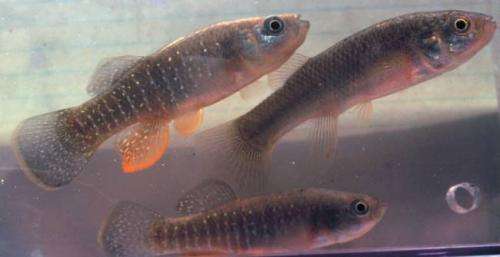Warmer oceans could raise mercury levels in fish

Rising ocean surface temperatures caused by climate change could make fish accumulate more mercury, increasing the health risk to people who eat seafood, Dartmouth researchers and their colleagues report in a study in the journal PLOS ONE.
Until now, little has been known about how global warming may affect mercury bioaccumulation in marine life, and no previous study has demonstrated the effects using fish in both laboratory and field experiments. Mercury released into the air through industrial pollution can accumulate in streams and oceans and is turned into methylmercury in the water.
The researchers studied killifish under varying temperatures in the lab and in salt marsh pools in Maine. Fish in the marshes ate insects, worms and other natural food sources, while the lab fish were fed mercury-enriched food. Results showed the fish in warmer waters ate more but grew less and had higher methylmercury levels in their tissues, suggesting increases in their metabolic rate caused the increased uptake of the toxic metal.
More information: www.plosone.org/article/info%3Adoi%2F10.1371%2Fjournal.pone.0058401
Journal information: PLoS ONE
Provided by Dartmouth College




















